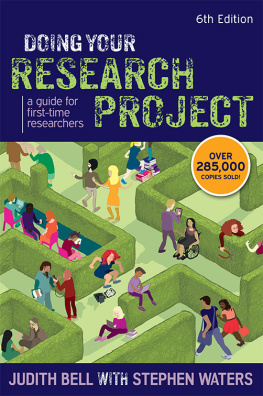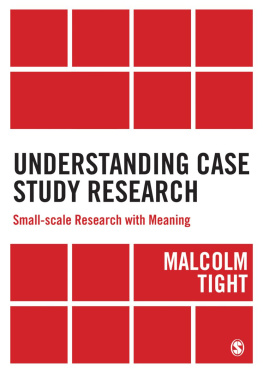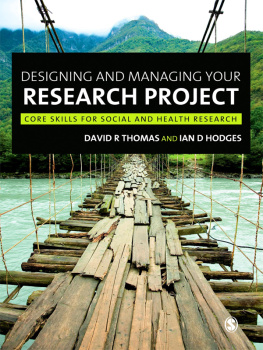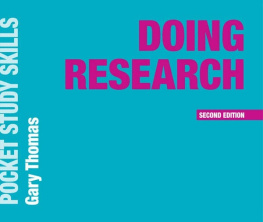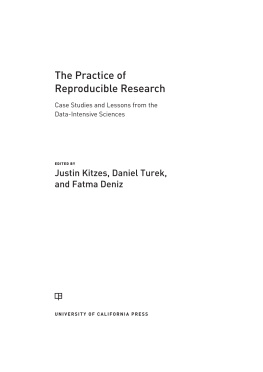Detailed Table of Contents
Acknowledgements
I have been helped throughout the preparation of all six editions of this book by the interest of friends, colleagues and former research students who have given strong support in often difficult times.
I am particularly grateful to Stephen Waters , an outstanding former research student. Stephen has supported me in the writing of this edition with invaluable work on reading, drafting and updating chapters and his collaboration has been a real asset. He also contributed the new , Using social media in research, to this sixth edition, which provides an introduction to how social networks can be harnessed to enhance the research process.
Brendan Duffy , another exceptional former student, wrote . The analysis of documentary evidence, included in this and earlier editions. I am very grateful for his continued contribution.
My thanks to Gilbert Fan , Singaporean-based former postgraduate student of the University of Sheffield, who permitted me to quote parts of his MEd literature review in and to John Richardson and Alan Woodley , both of the British Open University, who have again given me permission to quote from their journal article, Another look at the role of age, gender and subject as predictors of academic attainment in higher education (Richardson and Woodley 2003).
I would also like to acknowledge the contributions of two friends, Jan Gray , who provided the narrative inquiry sections in . My thanks to you both.
In my experience, I have found that good librarians generally know everything about most things and so I persuaded Richard Pears , co-author of Cite Them Right (Pears and Shields 2013) and faculty support librarian at Durham University library, to read and comment on (Literature searching) when I drafted it for the fifth edition. He commented in great detail and also brought me up to date about online search facilities in libraries and a great deal more. My apologies for this imposition Richard, but also my thanks.
Long-suffering Fred Bell once again took on the boring task of reading all the scripts and checking that the figures, tables, graphs and the like matched the texts. As usual he winced at what he regarded as some of my oversimplifications and unscientific language, but I have long since learnt which of his complaints and objections to ignore and which to accept with gratitude.
My continuing gratitude to Michael Youngman , formerly of the University of Nottingham, who devised the question types in , which have eased the burden of many research students who are in the early days of designing questionnaires and interpreting the results. The generous assistance and support he invariably gave to many struggling PhD students, including me, made the difference between our dropping out altogether and actually finishing.
I have always enjoyed Chris Madden s mazes, which have appeared on the front cover of all editions of this book. Unfortunately, Chris was unable to contribute to the cover in this edition but I thank him for his previous drawings, and welcome our new illustrator, Clare Wood , whose new interpretation of the research maze stays true to Chriss original concept. I can still smile (or sometimes even laugh out loud) at the pictures of distraught researchers going down blind alleys, attacking their laptops, losing patience and wondering why they ever started on the research in the first place. Yes. Been there; done that! However, the overall image is of students who managed to negotiate the maze and, having overcome the difficulties experienced by all researchers, are seen to be leaving it deliriously happy, in academic dress, holding their diplomas on high, throwing their mortarboards in the air and going forth to do more and even better research. The book would not be the same without the maze.
Nor could this sixth edition have been produced without all of your support and encouragement. To you all, my grateful thanks.
Judith Bell
Introduction
Doing Your Research Project is intended for those of you who are about to undertake research for what I refer to as a 100-hour project, an undergraduate dissertation or a postgraduate thesis. This new sixth edition follows the same tried-and-tested format as the previous five editions. It has, however, been thoroughly revised and updated throughout, reflecting developments in research practice and in the fast-paced world in which we operate as students, faculty members and researchers. In particular, Stephen Waters, contributing author to this edition, has updated the book by adding content on using social media in research and written a new chapter (Chapter 8) on the subject. You will also find a number of new features in this edition to help you navigate through your research project:
New chapter introductions provide at a glance lists of the key concepts and new ideas you will come across when you read each chapter.
New Dead End! boxes highlight potential risks or research problems, to help you to avoid the common pitfalls that can lead you to a dead end in the research maze!

